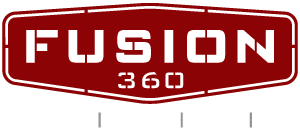
Keywords are the single most important aspect of SEO. As such, keyword research takes on an equal importance in the world of SEO; without keyword research, marketing companies cannot know what terms their target audience is using to find relevant products on search engines — something that can cost you dearly.
Get Inside the Customer’s Head
Keyword research begins with an in-depth analysis of your business itself. What kinds of products or services do you sell? What keywords do you want your website to rank highly for? Most importantly, what terms might a potential buyer use to look up something related to your product or service? When it comes to keyword research, the more you can get inside your customer’s head, the better.
Before you decide on a specific keyword or keywords for your SEO strategy, you need to figure out the relative value of that keyword for your business. First, pick a keyword that is immediately relevant to your business. If your business is a marketing agency in Utah, then your keyword might be “marketing agency Utah.”
Perform a Search for Your Chosen Terms
Plug that keyword into Google, Yahoo or Bing and see what results come up. Does that keyword pull up 15 million results or 150 million? For SEO beginners, the more specific your keyword, the better — keywords that target a niche market (such as “marketing agencies Utah”) tend to have fewer competitors, making it easier for your business to rank higher among them. Only once you’ve conquered the niche market you should expand to more generic keywords.
Utilize Keyword Research Tools
Once you’ve done enough of your own keyword research, it’s time to enlist the help of a keyword research tool. The Google Adwords Keyword Planner is the most popular option for this; Google Adwords can tell you how much traffic one of your chosen keywords is likely to bring in. Purchase a sample ad campaign and see how well one of your sample keywords performs; if it doesn’t look like it’ll bring in enough traffic, move on to the next keyword until you find one that works.
Find the Sweet Spot Between Search Volume and Buyer Intent
The best keywords are ones that not only bring in a decent amount of traffic, but are immediately relevant to your product or service — no matter to what point in the buying process they relate.
Whether you’re selling outdoor adventure products in Utah or nautical instruments on the East Coast, your keywords need to be relevant, searchable and not too difficult to rank highly for. Once you’ve got those keywords singled out, you’re well on your way to a highly successful SEO strategy.


